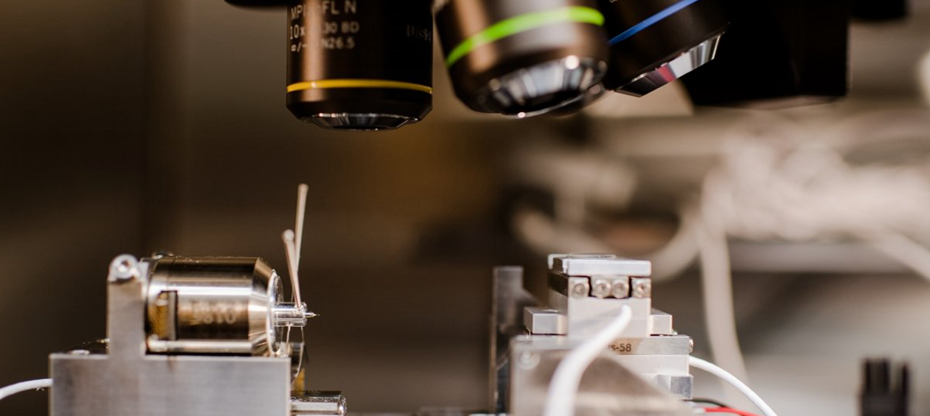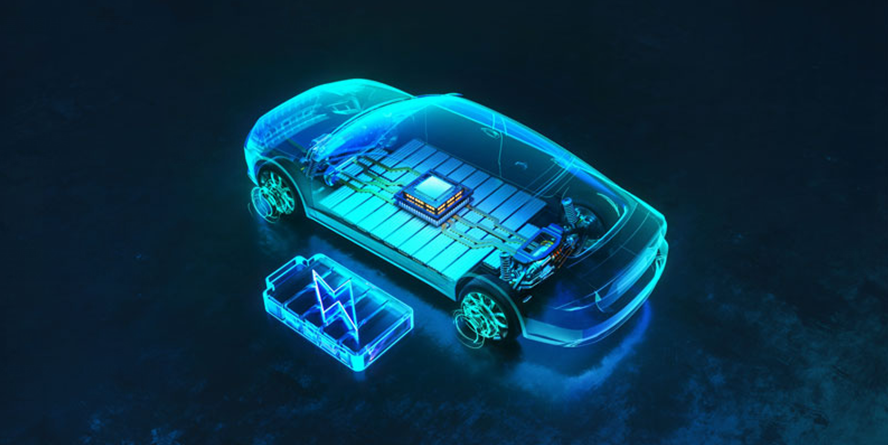Optimizing Communication Base Stations with Lithium Battery Technology
Introduction:
Communication base stations are the backbone of our modern wireless communication networks. They enable the transmission and reception of signals between mobile devices and the network infrastructure. These base stations require a reliable and efficient power source to ensure uninterrupted communication services. In recent years, lithium battery technology has emerged as a promising solution for optimizing the performance of communication base stations. This article explores the advantages of lithium batteries and how they can enhance the efficiency and reliability of communication base stations.
Advantages of Lithium Battery Technology:
1. High Energy Density: Lithium batteries offer a higher energy density compared to traditional lead-acid batteries. This means that they can store more energy in a smaller and lighter package. As a result, lithium batteries occupy less space and require fewer resources for installation, making them ideal for communication base stations where space may be limited.
2. Longer Lifespan: Lithium batteries have a longer lifespan compared to lead-acid batteries. They can withstand more charge and discharge cycles without significant degradation in performance. This extended lifespan reduces the need for frequent battery replacements, resulting in cost savings and reduced environmental impact.
3. Faster Charging: Lithium batteries can be charged at a much faster rate compared to lead-acid batteries. This is crucial for communication base stations that require a quick recharge to ensure uninterrupted power supply during peak usage periods or in the event of a power outage. Fast-charging capability minimizes downtime and improves the overall reliability of the base station.
4. Enhanced Efficiency: Lithium batteries have a higher charge/discharge efficiency compared to lead-acid batteries. This means that they can convert a higher percentage of stored energy into usable power, resulting in less energy wastage and improved overall efficiency. Enhanced efficiency translates to reduced operating costs for communication base stations.
Implementation of Lithium Battery Technology in Communication Base Stations:
1. Hybrid Power Systems: Communication base stations can benefit from hybrid power systems that combine lithium batteries with renewable energy sources such as solar panels or wind turbines. The lithium batteries store excess energy generated during periods of low demand and release it during peak demand, ensuring a stable power supply. This integration of renewable energy and lithium battery technology reduces reliance on the grid and lowers carbon emissions.

2. Intelligent Energy Management: Implementing intelligent energy management systems can optimize the performance of communication base stations powered by lithium batteries. These systems can monitor the battery status, energy consumption, and load demand in real-time, allowing for dynamic power allocation and load balancing. By intelligently managing the energy flow, the system can maximize the utilization of the lithium batteries and minimize inefficiencies.
3. Remote Monitoring and Maintenance: Lithium battery technology enables remote monitoring and maintenance of communication base stations. Through IoT-based connectivity, operators can monitor the battery health, temperature, and performance parameters from a central control center. This remote monitoring capability allows for proactive maintenance, early fault detection, and timely battery replacements, further enhancing the reliability and uptime of the base stations.
Conclusion:
Lithium battery technology offers numerous benefits for optimizing communication base stations. With their high energy density, longer lifespan, faster charging, and enhanced efficiency, lithium batteries are well-suited to meet the power demands of modern communication networks. By integrating lithium batteries into base station power systems, operators can enhance reliability, reduce operating costs, and contribute to a greener and more sustainable communication infrastructure.
-
 In today's technologically advanced world, computers have become an integral part of our daily lives. From work to entertainment, we rely heavily on these devices to carry out numerous tasks efficiently. One of the essential components of a computer is the mouse, which allows us to navigate through our digital world seamlessly. To power these devices, lithium batteries have emerged...続きを読む
In today's technologically advanced world, computers have become an integral part of our daily lives. From work to entertainment, we rely heavily on these devices to carry out numerous tasks efficiently. One of the essential components of a computer is the mouse, which allows us to navigate through our digital world seamlessly. To power these devices, lithium batteries have emerged...続きを読む -
 The 48V LiFePO4 battery is a type of rechargeable battery that has gained popularity due to its long-lasting performance and reliability. LiFePO4 stands for Lithium Iron Phosphate, which is the chemical composition of the battery's cathode material. This technology is becoming increasingly popular in various applications, including electric vehicles, solar energy storage, and backup power systems. In this article, we...続きを読む
The 48V LiFePO4 battery is a type of rechargeable battery that has gained popularity due to its long-lasting performance and reliability. LiFePO4 stands for Lithium Iron Phosphate, which is the chemical composition of the battery's cathode material. This technology is becoming increasingly popular in various applications, including electric vehicles, solar energy storage, and backup power systems. In this article, we...続きを読む -
 The battery industry has witnessed a rapid evolution in recent years, driven by advancements in technology and a growing demand for more efficient and sustainable power sources. As the world becomes increasingly reliant on portable electronic devices, electric vehicles, and renewable energy sources, the need for high-performance batteries has become paramount. This article explores the innovations and trends that are...続きを読む
The battery industry has witnessed a rapid evolution in recent years, driven by advancements in technology and a growing demand for more efficient and sustainable power sources. As the world becomes increasingly reliant on portable electronic devices, electric vehicles, and renewable energy sources, the need for high-performance batteries has become paramount. This article explores the innovations and trends that are...続きを読む -
 As the world becomes increasingly reliant on technology, reliable power supply is a necessity. The High-Capacity 12V 100Ah LiFePO4 Battery Pack is a solution that provides a long-lasting, dependable source of power. This battery pack is made from Lithium Iron Phosphate (LiFePO4), which is known for its safety, stability, and high energy density. Compared to traditional lead-acid batteries, LiFePO4...続きを読む
As the world becomes increasingly reliant on technology, reliable power supply is a necessity. The High-Capacity 12V 100Ah LiFePO4 Battery Pack is a solution that provides a long-lasting, dependable source of power. This battery pack is made from Lithium Iron Phosphate (LiFePO4), which is known for its safety, stability, and high energy density. Compared to traditional lead-acid batteries, LiFePO4...続きを読む -
 Today, as the new energy vehicle industry is booming, lithium-ion automotive batteries, as its core component, are gradually becoming a key force in promoting the transformation and upgrading of the automotive industry. In the following, the importance, technological progress, challenges and future prospects of lithium-ion automotive batteries will be explored from several key points. 1. Importance: The core of energy...続きを読む
Today, as the new energy vehicle industry is booming, lithium-ion automotive batteries, as its core component, are gradually becoming a key force in promoting the transformation and upgrading of the automotive industry. In the following, the importance, technological progress, challenges and future prospects of lithium-ion automotive batteries will be explored from several key points. 1. Importance: The core of energy...続きを読む -
 LiFePO4 stands for Lithium Iron Phosphate, which is a type of rechargeable battery. This battery is commonly used in electric vehicles, power tools, and consumer electronics due to its high energy density, long cycle life, and safety features. The LiFePO4 battery is made up of a cathode (positive electrode) made of lithium iron phosphate and an anode (negative electrode)...続きを読む
LiFePO4 stands for Lithium Iron Phosphate, which is a type of rechargeable battery. This battery is commonly used in electric vehicles, power tools, and consumer electronics due to its high energy density, long cycle life, and safety features. The LiFePO4 battery is made up of a cathode (positive electrode) made of lithium iron phosphate and an anode (negative electrode)...続きを読む -
 Lithium Battery-Powered Security Monitoring Equipment: Ensuring Reliable and Continuous SurveillanceSecurity has become a paramount concern for individuals, businesses, and governments alike. To address this need, advanced security monitoring equipment has emerged as a vital tool to deter crime and ensure the safety of people and property. One significant innovation in this field is the development of lithium battery-powered security monitoring equipment, which guarantees reliable and continuous surveillance in various...続きを読む
Lithium Battery-Powered Security Monitoring Equipment: Ensuring Reliable and Continuous SurveillanceSecurity has become a paramount concern for individuals, businesses, and governments alike. To address this need, advanced security monitoring equipment has emerged as a vital tool to deter crime and ensure the safety of people and property. One significant innovation in this field is the development of lithium battery-powered security monitoring equipment, which guarantees reliable and continuous surveillance in various...続きを読む

